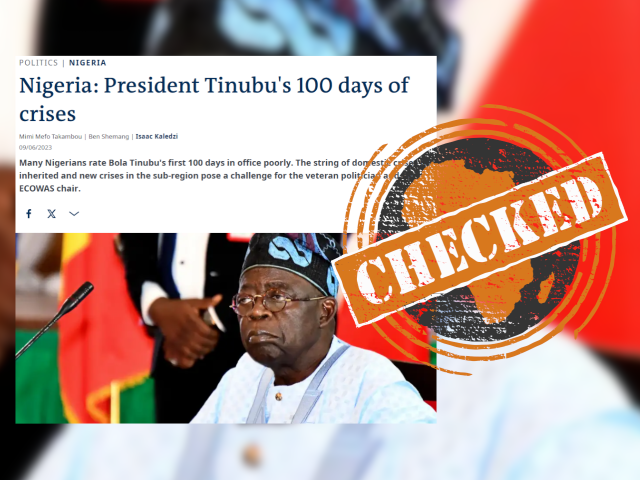No fuel subsidy for South Africa’s ‘previously disadvantaged’
South African motorists are feeling the pinch. A major hike in fuel prices took effect on 3 October 2018.
Website Breek Nuus claimed that some drivers could escape the increase.
The article reported that energy minister Jeff Radebe had convinced President Cyril Ramaphosa to “allow previously disadvantaged people to pay less for fuel by means of subsidising them”.
But the minister has never made such claims, Maropeng Ramokgobathi, a spokesperson in the department of energy, told Africa Check.
Petrol price heads north
The department gave a number of “international factors” as the reasons for the current price adjustments.
These include a higher rand exchange rate to the dollar, which means South Africa pays more for imported goods, and international tensions such as the “unwillingness by Organisation of Petroleum Exporting Countries (OPEC) to increase their production outputs”.
These have led to increases in the price of crude oil, which have been passed down to the price of refined products such as petrol, the department’s media report said.
What goes into the price of fuel?
The fuel price is set by four factors, according to Roula Inglesi-Lotz, a professor in the department of economics at the University of Pretoria.
They are:
-
The basic fuel price, which accounts for the shipping of fuel to South Africa
-
The general fuel levy, a tax on petrol sold
-
A levy for the Road Accident Fund, which pays victims of road accidents
-
Other costs such as wholesale and retail profits, distribution and transport costs.
Azar Jammine, the director and chief economist at the economic consultancy Econometrix, told Africa Check that no supplier could set their own price for fuel.
“It’s all controlled in South Africa,” Jammine said. “It’s all regulated. So the moment you give discounts you’re breaking the rules.”
Republish our content for free
For publishers: what to do if your post is rated false
A fact-checker has rated your Facebook or Instagram post as “false”, “altered”, “partly false” or “missing context”. This could have serious consequences. What do you do?
Click on our guide for the steps you should follow.
Publishers guideAfrica Check teams up with Facebook
Africa Check is a partner in Meta's third-party fact-checking programme to help stop the spread of false information on social media.
The content we rate as “false” will be downgraded on Facebook and Instagram. This means fewer people will see it.
You can also help identify false information on Facebook. This guide explains how.



Add new comment